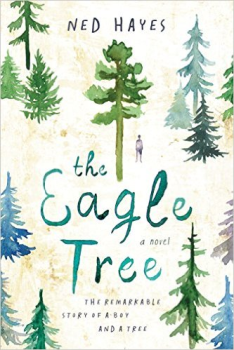










Popular Articles
Crazy-Makers: Dealing with Passive-Aggressive People
Why Are People Mean? Don't Take It Personally!
Struggling to Forgive: An Inability to Grieve
The Secret of Happiness: Let It Find You (But Make the Effort)
20 Steps to Better Self-Esteem
7 Rules and 8 Methods for Responding to Passive-aggressive People
What to Do When Your Jealousy Threatens to Destroy Your Marriage
Guide to How to Set Achieveable Goals
Catastrophe? Or Inconvenience?
Popular Audios
Audio Version of Article: Crazy-Makers: Passive-Aggressive People
Audio Version of Article: Why Are People Mean? Don't Take It Personally!
More PsychNotes: Childhood Disorders
Understanding Asperger's Syndrome, Grief, and Avoidance of Loss
by Monica A. Frank, PhD
Recently I read a fascinating novel told from the viewpoint of a young man on the autistic spectrum. The Eagle Tree by Ned Hayes is probably as close as someone who is not on the spectrum can describe what it must be like for someone without social understanding to operate in a social world.
In particular, this book made me think about how those on the autistic spectrum deal with loss. I've often seen that they have more trouble than others with the issue of grief. In my opinion their adherence to routines is likely related to this difficulty with grief because change involves loss—loss of the familiar, loss of control, loss of certainty.
I've worked with many people with Asperger's Syndrome, a developmental disorder characterized by poor social learning skills and strong adherence to routine and/or obsessional focus on a particular area of interest, and I think the book came close to what I have experienced in my work. If you read it, though, keep in mind that each individual on the autistic spectrum thinks and acts as differently from one another as the rest of us do.
In this book the young protagonist indicates that for him memories don't fade. As a result, whenever he experiences loss, the memory remains present at the same degree of intensity as when the loss occurs. From my experience with many of those on the spectrum “Time heals all wounds” isn't accurate.
I think this is a critical facet to understanding Asperger's and autism with greater compassion. Think about how we all prefer to avoid loss. I know when I have suffered loss in my life it feels as if I will never feel better. But then, at some point the grief becomes less intense. Eventually I can think of the person or event without the strong emotions. I survive the acute pain because I know I will heal.
Normally, it is built into our systems to have a limited memory for pain because we can't carry the intensity of the pain with us throughout our lives. We would be in constant torment. Therefore, we can remember that we were in pain and even that it felt awful but we don't have the sensory memory of the pain. For instance, if you break your arm you can remember that it really hurt but you can't remember the exact sensation of that pain.
However, imagine if the experience of the pain never changed. Imagine that the intensity of grief never fades. If that was the case, we would probably do everything within our power to avoid loss. We would likely become very distressed if people changed things in our environment because any change, even minor ones, may lead to feelings of loss.
As I write this, I wonder if some people who have the hoarding type of Obsessive-Compulsive Disorder may also experience loss in a different way. Perhaps they, too, feel the intensity of grief without it diminishing over time. To compensate, they hoard so they don't have to feel the effects of loss.
The tendency for most people when trying to understand others is to draw on their own experience. However, we need to recognize that our experience may not be sufficient and that others may experience the world in a profoundly different way. If we alter our perspective even slightly to understand what it must be like for them, we can have greater compassion for their journey through life. And perhaps, we can support this unique journey rather than expecting them to be like us.
Copyright © 2016 by Excel At Life, LLC.
Permission to post this article is granted if it includes this entire copyright and an active link.
Permission to post this article is granted if it includes this entire copyright and an active link.

More PsychNotes
Childhood Disorders

Aggressive Children Can Learn Control
How Playing Violent Video Games Affects Your Children
Medication and ADHD: What's Wrong With These Numbers?
How Effective is CBT for Children With Anxiety Disorders?
Are U.S. Children Over-medicated With Stimulants?
"Common Sense" Approach to Praise Can Worsen Self-esteem in Vulnerable Children
Why Some Girls Are More Vulnerable to Developing Depression/Anxiety When Marital Conflict is Present
ADHD: A Problem With Restraint?
Exercise Can Help Adolescents With Depression
Violent Video Games Cause Aggression
Emotions

When to Forgive Yourself: Self-forgiveness and Responsibility
Importance of Guilt vs. Irrational Guilt
The Costs of “Get Over It”
Empathy Requires a Strong Sense of Self
Six Characteristics that Distinguish a Healthy Anger from Hate
Love Enhances Men's Ability to Recognize Emotion
Rejection Elicits Positive Coping Among Those With High Self-Esteem
Mindful Attention Reduces Anger for Those With Borderline Personality Disorder
Addiction to Emotions and Mindfulness Practice
Does Sadness Cause Depression?
Acceptance as the Basis for Wisdom?
Drug Companies to Profit From Grief? An Opinion
“I want to feel good NOW!”
Moody? Maybe It's Your Stomach Bacteria
Be Realistic! Not Optimistic!
Anxiety and the Avoidance of Positive Emotions
Being Mindful of Emotions Decreases Intensity
Grief is Not Depression
To Cry or Not to Cry?
Qi Gong Exercise Shown to Improve Mood
Afraid of Feeling Good?
Leave Work at Work: Emotional Detachment













